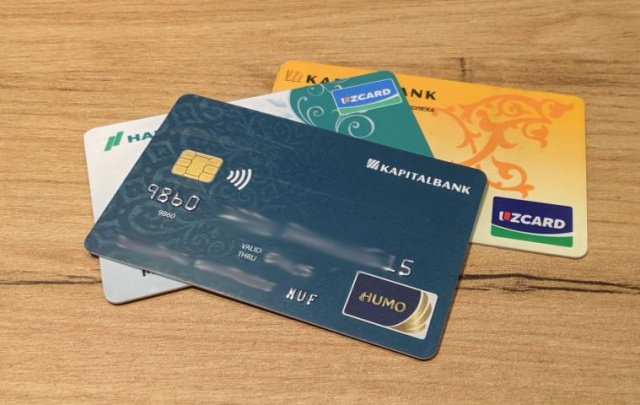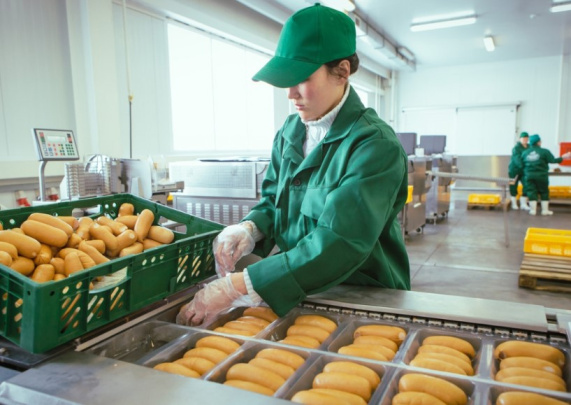Weekly digest: Parliamentary election results, 2025 budget plan, inflation expectations, investment in Navoi and more
This week in Uzbekistan, preliminary results of the parliamentary elections showed a strong lead for the Liberal Democratic Party, while officials reported on plans to expand textile exports to India. Emigration rates decreased, and foreign tech giants like Meta and Google significantly increased their tax contributions. New regulations were introduced for extended stays in border zones, and a $5.5 billion borrowing cap was set for 2025. Changes to tax policies were announced, including new excise taxes on sugary drinks, alongside a boost in energy, education, and housing subsidies. Boysun residents called for urgent help over toxic gas issues, while the U.S. imposed sanctions on two Uzbekistan-based companies linked to Russia. China and Russia topped the list of Uzbekistan's trade partners, and President Mirziyoyev launched major investment projects in the Navoi region.
Parliamentary elections: Preliminary results released
The Central Election Commission (CEC) reported a 74.72% voter turnout in the October 27 parliamentary elections, with 15 million out of 19.9 million registered voters participating. In the Legislative Chamber, the Uzbekistan Liberal Democratic Party (UzLiDeP) led with 34.75% of the votes, securing 64 seats. The "National Revival" Democratic Party followed with 29 seats, the "Justice" Social Democratic Party with 21 seats, the People's Democratic Party with 20 seats, and the Ecological Party with 16 seats.
Uzbekistan plans to boost textile exports to India
Ambassador Sardor Rustamboyev met with India’s Union Minister Pabitra Margherita to discuss boosting Uzbek textile exports, especially knitwear, to India. The meeting, ahead of the Bharat Tex exhibition in February 2025, highlighted Uzbekistan's recent advancements in textile technology and manufacturing. Plans were also set for Uzbekistan’s strong presence at Bharat Tex, showcasing its textile sector and fostering business ties.
Uzbekistan sees decline in emigration
According to new government data, between January and September 2024, 8,374 citizens of Uzbekistan relocated abroad for permanent residence. The majority of these emigrants chose Kazakhstan and Russia as their new homes. In comparison, during the same period in 2023, 14,666 citizens of Uzbekistan emigrated, with Kazakhstan again being the primary destination, receiving 11,921 of these new residents.
Foreign tech giants double tax payments in Uzbekistan, exceeding 100 billion UZS
According to the State Tax Committee, over the first nine months of 2023, 61 international tech firms contributed 101.9 billion UZS in taxes, marking a 2.1-fold to 849.1 billion UZS — a 1.9-fold rise. The majority of tax revenues — 99.9% — came from ten major IT companies. Meta led the group with 41.1 billion UZS in tax payments, followed by Google with 26.1 billion UZS. Together, these two companies accounted for two-thirds of both total services and tax payments.
Uzbekistan's border zone rules tightened: Documentation needed for extended stays
The government of Uzbekistan has approved a new regulation detailing rules for staying within and crossing the state border, as well as for conducting activities in border areas. The resolution, issued by the Cabinet of Ministers, introduces guidelines for individuals staying in the border zone for more than five days, requiring them to present registration documentation from internal affairs authorities.
Uzbekistan sets $5.5 billion cap on external borrowing for 2025
As of July 1, 2024, Uzbekistan’s national debt had surpassed $37 billion, marking an increase of $2.1 billion within the first half of the year. The bulk of this debt has been directed toward budgetary support.
Uzbekistan to impose new excise tax on sugary drinks, increases on property taxes
The Ministry of Economy and Finance has outlined changes to the country's tax policy, set to take effect on January 1, 2025. Key adjustments include a 10% increase in property and land tax rates, as well as new excise taxes on sugary beverages. These revisions aim to improve revenue generation while also promoting responsible resource use and environmental sustainability.
2025 budget: Uzbekistan plans extensive support for energy, education, and housing
has announced plans to allocate 28.3 trillion UZS in subsidies for the year 2025, covering essential sectors such as energy, heating supply, private kindergartens, and more. This figure surpasses the combined funding for social benefits, science, culture, and sports, highlighting the government's commitment to these crucial areas.
Boysun residents demand urgent action as toxic gas threatens health
Residents of the Shirınobod neighborhood in Boysun are calling for immediate government assistance as they grapple with hazardous gas emissions from a nearby gas field. The situation has become increasingly alarming, with reports of rising gas levels and instances of poisoning among the local population. As winter approaches, fears about how to cope with the season have heightened.
U.S. expands sanctions to include two more Uzbekistan-based companies
The United States Department of the Treasury has imposed sanctions on two additional companies registered in Uzbekistan — Uzstanex and The Elite Investment Group — citing their involvement in bypassing restrictions against Russia. The Treasury’s move follows allegations that these companies have assisted in supplying critical technology and equipment to Russia’s defense sector.
Uzbekistan's top 10 trade partners for 2024: China and Russia top the list
China and Russia top the list, Kazakhstan ranks third, contributing $3 billion to Uzbekistan's trade volume. Turkey and South Korea also stand as significant partners, with trade turnovers of $2.2 billion and $1.5 billion, respectively.
President Mirziyoyev launches $3.6 billion investment projects in Navoi region
In a major economic development, President Shavkat Mirziyoyev recently inaugurated 15 large-scale investment projects worth a total of $3.6 billion in the Navoi region. These projects are expected to generate over 7,000 new jobs and stimulate growth across various sectors in the region.
Government plans to raise taxes for marketplace sellers next year
Government plans to raise taxes for marketplace sellers next year. In a new budget announcement, the Ministry of Economy and Finance detailed tax rate increases for entrepreneurs selling goods through online platforms. The measures, set to take effect next year, will raise the profit tax rate from 7.5% to 10% and the turnover tax from 2% to 3%.
Energy prices set to rise in Uzbekistan: Central Bank weighs impact on inflation
Starting next year, electricity prices may rise by 24%, natural gas by 36%, liquefied gas by 25%, and methane gas by 39%. According to Mamarizo Nurmuratov, these adjustments are factored into the bank's inflation forecast. However, he emphasized that fluctuations in energy prices could still affect inflation and lead to modifications in policy.
Related News

18:01 / 09.01.2025
Islamic finance: Unlocking hidden capital for economic growth

17:05 / 09.01.2025
Uzbekistan imposes limits on payment cards: What it means for the economy

13:54 / 08.01.2025
Despite year-end gold decline, Uzbekistan's total reserves increased by $6.6 billion in 2024

19:27 / 03.01.2025



